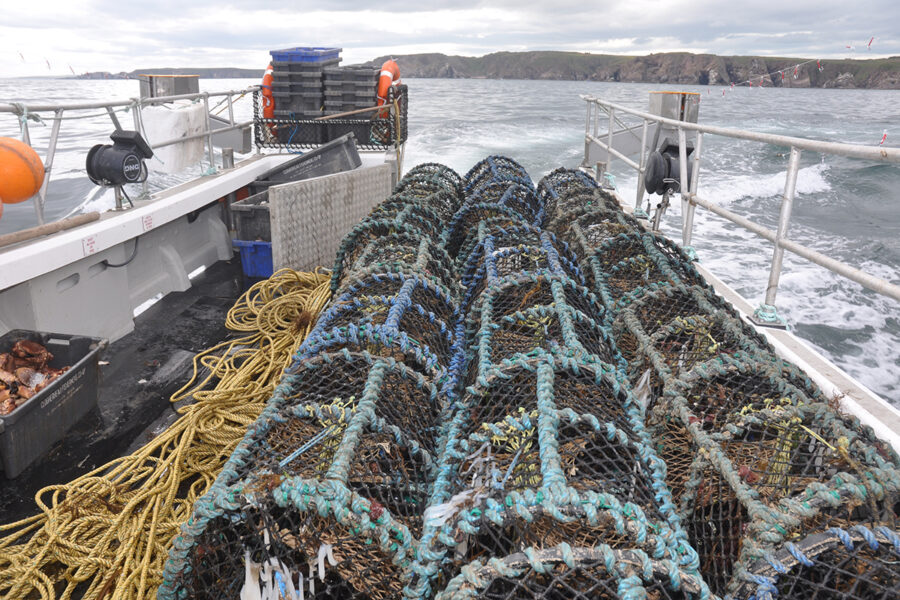Report warns of dangers to shellfish sector.
Many UK small boat fishermen and fishing communities stand to be worse off after Brexit according to an economics ‘think tank’. In particular, the many boats that do not have quota, such as shellfish boats, but which export to the EU, will be hit by Brexit.
This is the central finding of an analysis carried out by the New Economics Foundation (NEF) which examines different Brexit outcomes and their impact on different sectors of the fleet.
The report – Not in the Same Boat: The economic impact of Brexit across UK fishing fleets – considers five Brexit scenarios ranging from ‘No Deal’ to ‘Soft Brexit’ (see table).
It finds that it is only if the government puts fisheries first and above all other interests in the Brexit negotiations and the EU does not prioritise fisheries (‘Fisheries First’ Brexit) that there will be benefits across the UK fleet.
But in the more likely scenarios, the report says Brexit will see some fishermen – mainly small boats – do far worse than others. Also, the rest of the fish supply chain – processors, wholesalers and retailers – is highly exposed to the risks of tariffs and non-tariff barriers. This means that under any likely Brexit scenario, coastal communities in the UK will be worse off.
The report also highlights the danger of overfishing as a result of UK politicians and industry leaders promising more quota, while European leaders promise not to decrease quota. An increase in overfishing would be both environmentally and economically disastrous for all concerned, says the report.
Griffin Carpenter, senior researcher at the NEF said: “For many of Brexit’s most passionate advocates, the fishing industry has been a totemic issue. They claim we can take back control of our waters and give more quota to struggling fishers. But in reality, the UK has always been able to decide who gets quota –and it has always been the little boats that have lost out.
“Our research shows that Brexit will almost certainly make things worse for much of Britain’s fishing fleet, as well as the already struggling coastal communities which rely on fishing. Half of Britain’s fleet don’t have any quota but do export to Europe. Brexit will hit them particularly hard.
“Brexit poses a severe threat to Britain’s fishing communities, as the majority of ports receive most of their landings from vessels that do not hold quota but do export to the EU market. As ministers negotiate a future fishing deal, they must be clear on the scale of this threat.”
The report makes a series of recommendations aimed at securing a healthier future for the British fishing fleet through Brexit and beyond. These include:
● Dropping combative rhetoric in Brexit negotiations and focusing on a co-operative approach
● Using any increase in quota to support the smaller boats which traditionally lose out
● Seeking a post-Brexit transition deal for at least two years
● Securing access to the EU market with minimum tariffs and non-tariff barriers
● Empowering fishermen through co-management and increased representation for the small-scale fleet
● Generating funding for management through a landings tax.
Griffin Carpenter continued: “We need a fishing policy that supports all British fishers and coastal communities, and which does not harm our marine environment. We will only get this if we seek to co-operate with our neighbours and use existing powers of quota allocation to support those fishers who traditionally lose out.
“We can take control of our waters, but that doesn’t happen just by shouting about it. It happens by working with our neighbours to ensure shared stocks are fished sustainably, and barriers to trade are minimal. And it happens by empowering all fishers – large-scale or small-scale, local sellers or fish exporters, quota-rich or quota-poor – so they can build truly sustainable local economies. That would be real control.”
The full report can be downloaded here
Read more news from Fishing News here.








